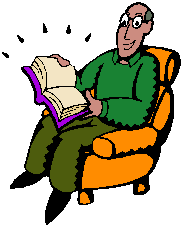Bibliophobia – the fear of books
It sounds a bit funny doesn’t it, that someone might have a fear of books and yet this phobia has been known to seriously affect self-esteem, jobs and career progression, and also financial security.
affect self-esteem, jobs and career progression, and also financial security.
Love to go back to school but dread the thought of study?
It’s not so much the book itself that can trigger the phobia, it is everything attached to the book. Think of embarrassment in school when a teacher wants someone to read and they have dyslexia and the words float across the page.. Or trying so hard to learn something, remember it, and not being able to understand it because you are filled with anxiety every time that someone in authority comes near you for fear of getting into trouble.
So, it isn’t necessarily the book itself that is a problem it may be all the associated emotions that spring up and overwhelm the bibliophobe. When I was studying psychology at Uni, there were some text books that put me straight to sleep! I would be determined to read a chapter and find myself re-reading it over and over with my eyes barely able to stay open. I then had to decide that these texts were for daytime study, although that didn’t even help much. In the finish, it came down to my desire to pass exams out-weighing the desire to avoid certain books, especially those on statistics. When you read the list of symptoms, even having to study for a driving test could cause problems. And how about needing a degree to get ahead in a job?
Speed reading might help some people
What symptoms might indicate Bibliophobia?
- Panic
- Anxiety
- Avoidance of books
- Avoidance of study
- Avoidance of having to learn new things that involve pieces of paper
- Trembling of hands, jelly legs
- Shallow breathing
- Heart pounding
- Feeling nauseous
- Feeling like fainting
What is the treatment for a phobia of books?
It may be useful to have vision tested and be tested for dyslexia in case there are problems in these areas. Sometimes the client knows what has caused the phobia of books, but there would be others who do not know how it started. If the person knows the trigger, then Cognitive Behaviour Therapy may be useful to unravel the distorted thoughts that trigger the emotions. This can be incorporated with Relaxation training.
Systematic desensitization can also be used for this phobia, where the client practises deep breathing and relaxation training and is exposed to books, preferably starting with small, bright children’s books and gradually moving onto other books, be they novels or text books or manuals.
Hypnosis might also provide a therapeutic intervention, as it is said to reach to the core of the problem and rewrites the old scripts with new and different ways of thinking, feeling and behaving. This may take up to 4 to 6 sessions to achieve or be achieved in a shorter time. The thing is that the longer the phobia has been in place, the more familiar is the pattern.
The new way of behaving may need to be reinforced with several sessions so that this becomes the familiar pattern instead. Avoidance of books will not solve the problem, it allows the bibliophobia to become further entrenched as the more the person avoids, the more they are actually reinforcing the phobia by paying it negative attention. Challenging the phobia is difficult and at the same time, necessary in order to allay fears and learn new ways of reacting to books.
Some people need extra motivation to study
Perhaps spelling is difficult?
Bibliophobia is a serious disorder, as a fear of books can impact on lifelong self-esteem, career, financial security and even the pleasure of being able to relax with a good book, or find out about our fascinating world.
The good news is that help is available and that bibliophobia can be treated.



